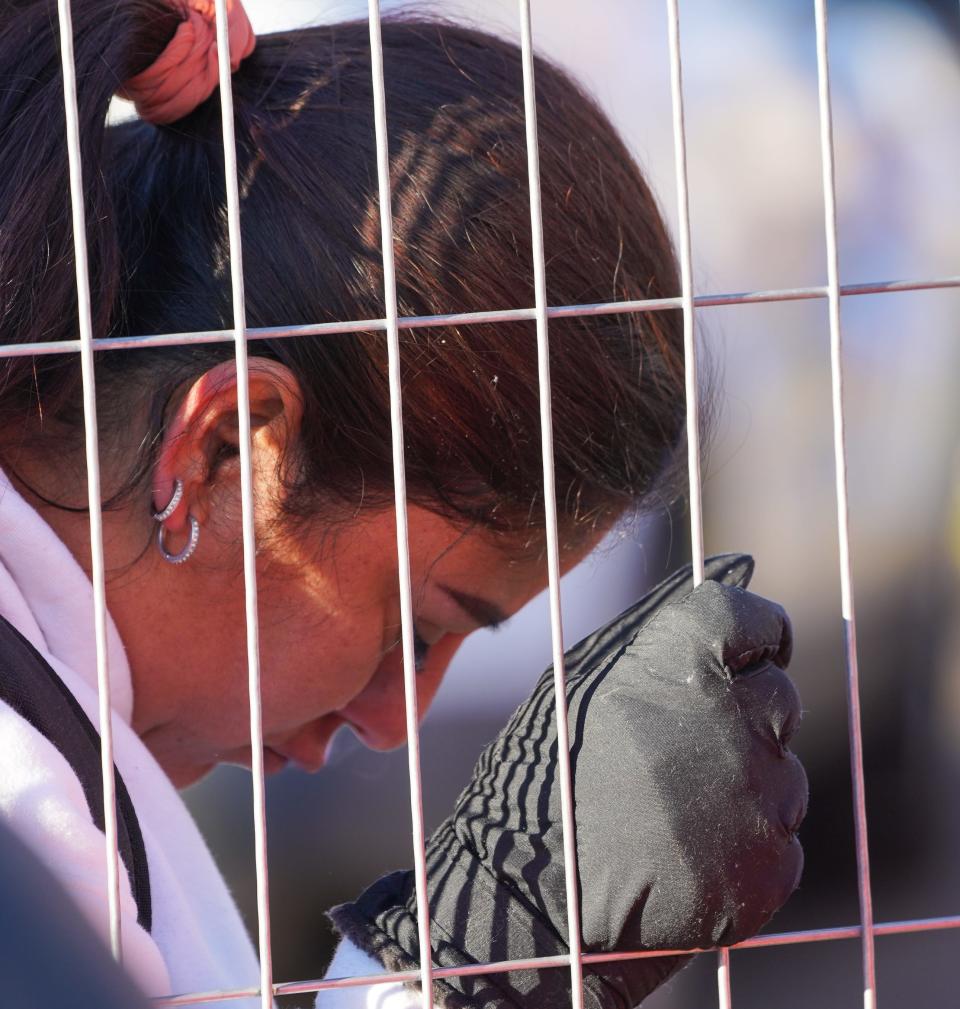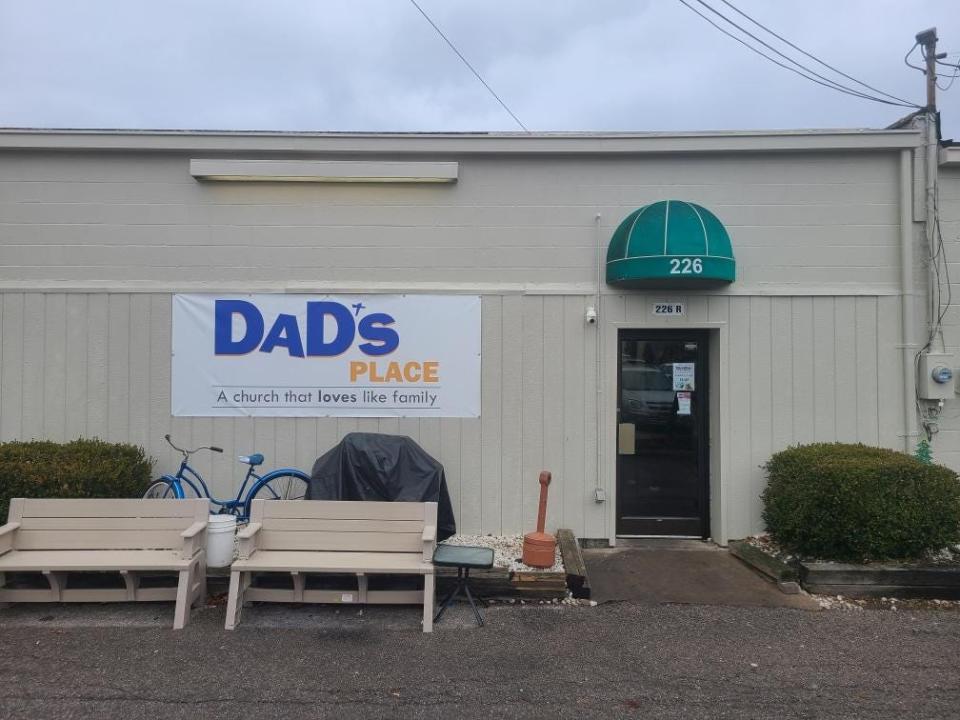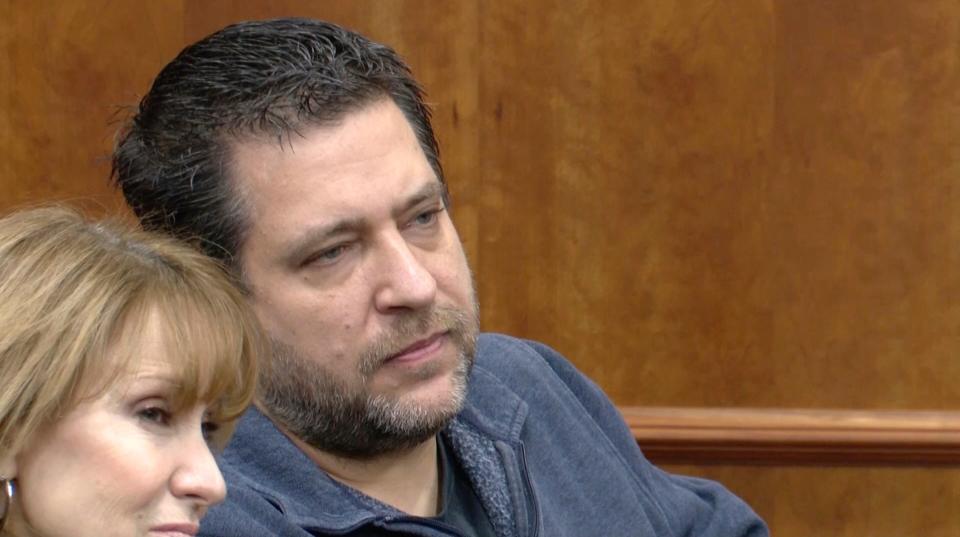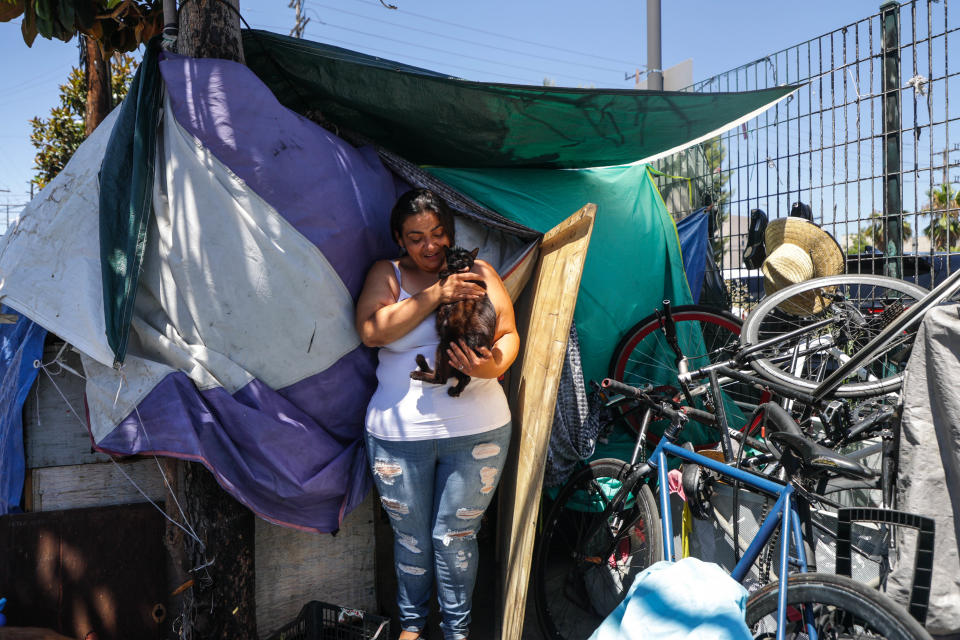Could helping the homeless get you criminal charges? More churches getting in trouble
As rates of homelessness in the U.S. grow, more churches across the country are coming under fire from law enforcement for helping people in need get something to eat and a place to stay.
City officials say churches are violating zoning codes by providing food and shelter − roles Christian congregations across the U.S. have filled for hundreds of years, pointing to the teachings of Jesus Christ and his followers.
Church leaders say they're responding to the nation's housing crisis, which in recent years has spiraled so far out of control that more than half of American renters can no longer afford their monthly bill, researchers at Harvard University said last week. In 2023, the U.S. homeless population swelled to nearly 600,000, the greatest number since federal officials began their current method of tracking in 2007.
Religious leaders say they have more of a duty than ever to help low-income Americans, just as their churches are facing more barriers from city officials. At the same time, law enforcement across the country are sweeping away more tent encampments, telling unhoused people to seek shelter anywhere they can find it, including at churches and warming centers.
"You’re very much damned if you do, damned if you don’t," said Eric Tars, legal director at the National Homelessness Law Center, adding that helping those in need should trump any local zoning ordinance banning sleeping or eating in a particular building.
“Officials would have thrown the innkeeper in jail for offering his manger to Joseph and Mary because it wasn’t zoned for residency and didn’t meet the fire code," he said.

Bryan, Ohio, pastor faces criminal charges
This month in Ohio, a pastor filed a federal lawsuit against the city of Bryan in the state's northwest corner after officials threatened to shut his church down for housing a handful of people in violation of zoning rules.
In Bryan, there are "two sides of the tracks," pastor Chris Avell told USA TODAY, explaining how his church, Dad's Place, sits at the intersection of the east side of town, which is less developed, and the west side.
Avell was given a notice to appear in court on more than a dozen criminal charges including lacking a proper kitchen and laundry facilities, having unsafe exits, and using improper ventilation. The zoning ordinances in question say people cannot eat, sleep or wash their clothes in the church's district, which is zoned for commercial use.
He pleaded not guilty and hired lawyers to file a federal lawsuit against the city, citing religious discrimination.
"It is so fundamental to what I believe the word of God teaches," he said.
“There’s a significant need," Avell said. "There’s a housing crisis in Bryan. It’s no secret, it’s just clear."
Dad's Place began operating 24/7 last March as a warming center for anyone in need − a model that's not uncommon among churches nationwide.
“We need some more low-income housing, we need some more housing for people with disabilities and other issues, we need more housing across the board," Avell said.
His church is near a Medicaid clinic, a job training center and a separate homeless shelter, all services used by unhoused people.

Fire department officials had not inspected the church building for the past 30 years, said Avell's lawyer Jeremy Dys, until it started operating as a place where people in need could find shelter.
Then the fire code violations started to come − and they haven't stopped since, Dys said.
In recent months, officials have given the church contradictory guidance as they try to comply with fire codes, Dys said. Officials said first that the building's two doors must always be unlocked. Later, they said crash bars must be installed, according to Dys.
Unhoused people are "constantly harassed by police," Dys said.
“What the city is doing is trying to drive this population out of their sight," Dys said. "So they have deployed these intimidating tactics that unfortunately the unhoused population only knows too well.”
Marc Fishel, a lawyer representing the city of Bryan, said that officials are applying the law equally to all businesses, churches and homeless shelters downtown and that the city rejects claims its enforcement of the fire code is anti-homeless.
Dad's Place said that because it's zoned as a church, it should be able to shelter people in need, but Fishel said the city believes it is not placing an undue burden on the church by trying to prevent people from sleeping there overnight.

Police cited zoning, permit laws when churches helped unhoused people
City officials in recent years have cited zoning and permit violations at churches and other nonprofits across the country that feed or provide temporary shelter to people in poverty.
Last week in Arizona, leaders at AZ Hugs for the Houseless said the organization has been banned from hosting its Sunday picnics in public parks for at least 12 months. City officials had allowed the picnics for years, then told the organization to apply for the proper permit in November. The picnics continued in the meantime, according to The Arizona Republic, part of the USA TODAY Network, but then the city denied the permit request this month, citing "repeated defiance." In a statement this month, the city of Tempe said it "admires the compassion that goes into helping people who are unsheltered, but charitable food events must follow the same rules as other Tempe events open to the public."
In Houston last year, a jury found a man not guilty of breaking local laws when he fed unhoused people outside. Phillip Picone went to trial for criminal citations he received in March 2023 after not moving his meal service to another location. After his trial, Pincone sued the city, arguing laws banning sharing food with people outdoors violate his freedom of expression and freedom of religion. The lawsuit asked for a temporary injunction against the city, which has yet to come. In the meantime, Pincone continues serving meals several days a week outside, his lawyer Randall Kallinen told USA TODAY.
This month in Houston, the city was unable to put together an unbiased jury in the case of a woman who is also part of Picone's group, Food Not Bombs, the Houston Chronicle reported. The woman received a $500 ticket for giving out meals, allegedly violating Houston's ordinances. But the jury was dismissed after they said they would not issue the fine from the city. The trial can be rescheduled with a new jury. Roughly 90 tickets have been issued to food volunteers in Houston, and the city hasn't won a single case, according to the Houston Chronicle.
Last year in California, church leaders sued the city of Santa Ana after officials threatened to fine them for feeding unhoused people, technically violating zoning codes. "They figure, if you don’t provide food, then you won’t be an attraction to the poor and the homeless. And that's why instead of cracking down on the poor and the homeless, they’re going after the homeless service providers themselves," Ed Connor, an attorney representing the church, Micah's Way, told USA TODAY last year. Connor did not immediately respond for comment this week.
In Brookings, Oregon, St. Timothy Church sued the city in January 2022 after officials enacted an ordinance making the church restrict its meal service to two days a week, down from about six − a move church leaders said prohibited the congregation from exercising its religious duty to serve the poor. "That's a ministry of our church. We're allowed to be a church, and you can't tell us that we can't practice our faith by feeding people," Father Bernie Lindley told USA TODAY. A federal judge is set to hear the case on Feb. 15, he said.
After a church in Pottstown, Pennsylvania, began operating as a warming shelter for unhoused people, borough officials issued a zoning violation in November 2022. Church leaders at Pottstown Beacon of Hope said the warming center was needed as a stopgap measure while building plans for its shelter were tied up in property title problems, The Mercury in Pottstown reported. The Beacon of Hope warming center is now rotating among four churches.
Zoning codes are designed to protect people, but enforcement can be 'reactionary,' experts say
City zoning laws were designed to prevent land in the same area from being used for conflicting reasons, such as a factory being built right next to a neighborhood, according to urban planning experts. Common zoning codes include residential, commercial, industrial, institutional or mixed-use, which is more commons in big cities and downtown areas.
The codes dictate what the land's owner can and can't do on the land, said Tom Daniels, a professor of urban planning at the University of Pennsylvania.
"It's not the classic 'It's my property and I can do what I want with it,' because zoning is really the law that determines that," Daniels said.
Debates over upzoning, when something that's zoned for fewer people and lower density gets zoned for more people and higher density, are increasingly common at city council meetings across the country, said Georgia Tech city planning professor Clio Andris. Homeowners and housing advocates typically clash over whether more affordable multi-family apartment buildings should be built in areas now zoned for traditional single-family homes, she said.
Overall, the nation's local zoning codes keep people safe and keep land use predictable, said David A. Banks, a professor of geography and planning at the State University of New York at Albany.
When it comes to zoning code violations, city officials have a lot of discretion over how they enforce codes and are often "very reactionary," Banks said, explaining how a long list of zoning code violations can be swiftly and easily levied against pretty much any building and its residents, especially if there are tensions in the community.
"Ideological conflicts can use zoning as a tool in whatever fight is taking place, because zoning is an attempt to bring rational order to a very chaotic world," Banks said. "These laws are so precise that at any one point you could go find you're in violation of something."
In the case of Dad's Place, "one of the real questions the pastor is wrestling with is: Where do homeless people go?" Daniels said. "That's a real challenge."

Church leaders, Justice Department say helping needy is 'religious exercise'
In Bryan, Ohio, officials in the town of less than 10,000 are "ill-equipped" to care for, counsel and spiritually support residents struggling with hardship and addiction, which is the role of Dad's Place, Dys said.
“What Dad’s Place is doing is caring for that entire person," Dys said. “They provide them a place of safety, whether they’re temporarily homeless or just need a place to crash while there’s some turmoil elsewhere. They can be safe in that place.”
As motels in Bryan remain booked with people seeking shelter and winter drags on, Avell and Dys said they expect to win their lawsuit, which hopes to keep the city from enforcing zoning codes "to burden the plaintiff's religious exercise."
In the legal cases out of California and Oregon, the Department of Justice issued statements of interest arguing distributing food and drink to homeless and poor people is a "religious exercise" that could be a federally protected activity.
Dad's Place can continue serving as a warming shelter until at least March 4, when the judge in the case will consider its request for an injunction against the city.
Over the next month, Avell said he will keeping "fighting the good fight" and said he encourages churches across the nation that may be involved in similar zoning battles with local officials to do the same.
“Do not grow weary of doing good," he said. "In due season you’ll reap the harvest if you don’t give up."
Contributing: Ahjané Forbes and Jeanine Santucci, USA TODAY; Victoria Moorwood, The Enquirer; The Associated Press
This article originally appeared on USA TODAY: Chris Avell charges show churches helping homeless face legal risks

